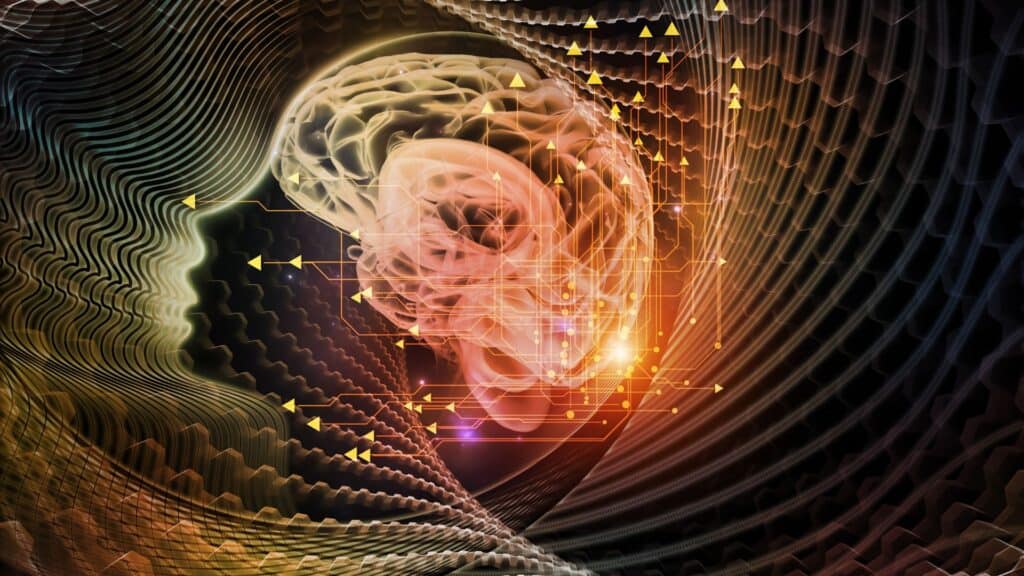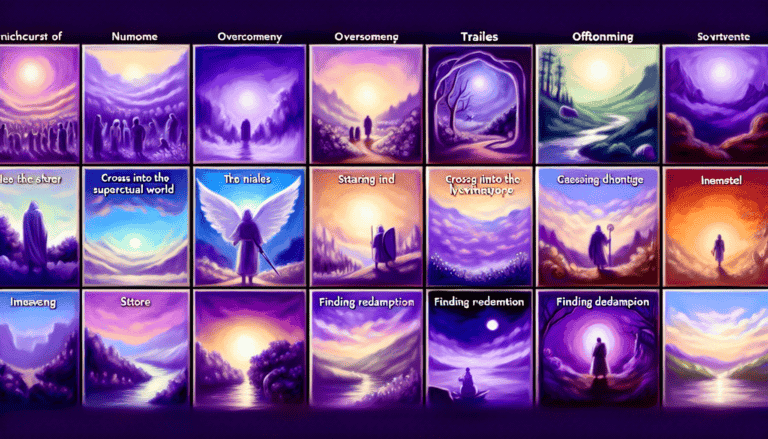Ever feel like you’re only scratching the surface of what you’re truly capable of? You’re not alone! In this age of unprecedented technological advancement, understanding your strengths and weaknesses is more crucial than ever. The good news? Artificial intelligence is revolutionizing how we approach self-assessment. Forget generic self-help books and vague advice in 2025, AI provides personalized, data-driven insights that can help you unlock your full potential. If you want to understand the true power of AI strengths and weaknesses analysis, then I’m here to give it to you!
I used to think that self-awareness was just a fluffy concept, something for therapists and life coaches to talk about. But then I realized that knowing what you’re good at (and what you’re not) is like having a secret weapon in your career and personal life. If you can take the time to look, then things can really start clicking!
This article will dive deep into the world of AI-powered self-assessment, exploring how these tools work, what benefits they offer, and how you can use them to create a personalized development plan. We’ll cover everything from identifying your core strengths to overcoming hidden weaknesses and cognitive biases.

Why AI Strengths and Weaknesses Analysis Matters for Personal Growth
Okay, let’s get real. Why should you even care about using AI to analyze your strengths and weaknesses? The answer is simple: because it works! Self-awareness is the cornerstone of personal and professional growth, and AI can provide a level of insight that was previously impossible.
Think of it this way: imagine you’re building a house. You wouldn’t start construction without a solid foundation, right? Understanding your strengths and weaknesses is like laying that foundation. It allows you to build a life and career that are aligned with your natural talents and abilities.
I can’t tell you how many times I’ve seen people struggle in their careers because they were working in roles that didn’t play to their strengths. They were constantly fighting an uphill battle, feeling stressed and unfulfilled. On the other hand, I’ve seen people thrive when they found roles that allowed them to leverage their natural talents and passions. It’s all about finding that sweet spot where your strengths align with your goals.
Furthermore, identifying your weaknesses isn’t about dwelling on your flaws; it’s about understanding where you need to focus your efforts for improvement. Maybe you’re a brilliant strategist but struggle with public speaking. Knowing this allows you to invest in training or seek out opportunities to develop your communication skills. It’s about turning your weaknesses into strengths, or at least mitigating their impact.
Top AI Tools for Identifying Your Key Strengths in 2025
Alright, let’s get to the fun part: exploring the AI tools that can help you uncover your hidden talents! I’ve personally tested several of these tools, and I’m constantly amazed by their accuracy and sophistication. Here are some of my top recommendations:
- Crystal Knows: This AI-powered personality assessment analyzes your communication style and provides insights into how you interact with others. It’s like having a cheat sheet for building relationships and navigating social situations. I used Crystal Knows before a recent networking event, and it helped me tailor my approach to different personalities, leading to more meaningful conversations and connections.
- Gallup StrengthsFinder (with AI Analysis): While Gallup StrengthsFinder has been around for a while, they’ve recently integrated AI analysis to provide even more personalized and in-depth feedback on your top strengths. This tool helps you understand your unique talents and how to leverage them in your work and personal life. I love how Gallup focuses on what you’re naturally good at, rather than dwelling on your weaknesses.
- Skills Assessment Platforms: Platforms like Coursera and LinkedIn Learning are incorporating AI-powered skills assessments to evaluate your abilities in various areas. These assessments provide personalized feedback on your strengths and identify areas where you can improve your skills.
When using these tools, it’s important to approach the results with an open mind. Don’t take the AI’s assessment as gospel, but rather as a starting point for further self-reflection and exploration. Remember, AI is a tool, not a fortune teller. It’s up to you to interpret the results and use them to guide your personal growth.
Uncovering Hidden Weaknesses and Blind Spots with AI-Powered Feedback
Okay, time for the less comfortable part: facing your weaknesses. But hey, as the saying goes, “the first step to solving a problem is admitting you have one.” The truth is, we all have weaknesses and blind spots, areas where we’re not performing at our best or where we’re simply unaware of our limitations.
Fortunately, AI can help us uncover these hidden weaknesses and blind spots by providing honest, unbiased feedback on our performance. Here are some of the AI-powered tools that can help:
- AI-Driven Performance Analysis Systems: Many companies are now using AI-powered performance analysis systems to track employee performance and identify areas for improvement. These systems analyze your work habits, communication patterns, and project outcomes to provide personalized feedback on your strengths and weaknesses. While this can be intimidating, it’s also a valuable opportunity to gain insights into your performance and identify areas where you can improve.
- AI-Powered Tools for Identifying Cognitive Biases: We all have cognitive biases, those mental shortcuts that can lead us to make irrational decisions. AI-powered tools can help you identify these biases and make more objective choices. For example, tools like MonkeyLearn analyze text for sentiment and can help you identify biases in your writing or communication.
- Grammarly (Tone Detection): It’s a simple place to start, but Grammarly now offers tone detection, which can help you understand how your words are perceived. While it’s not a perfect tool, it can be a helpful starting point for identifying potential communication issues.
It’s important to remember that receiving feedback, especially negative feedback, can be challenging. Don’t take it personally! Instead, view it as an opportunity to learn and grow. Use the feedback to identify specific areas where you can improve, and then create a plan to address those weaknesses.
Creating a Personalized Development Plan Using AI Insights: A Step-by-Step Guide
So, you’ve used AI to identify your strengths and weaknesses. Now what? The next step is to create a personalized development plan that will help you leverage your strengths and address your weaknesses. Here’s a step-by-step guide to get you started:
- Set SMART Goals: Use the AI insights to set Specific, Measurable, Achievable, Relevant, and Time-bound (SMART) goals. What do you want to achieve, and how can you use your strengths to get there? For example, if AI has identified that you’re a natural communicator, maybe you set a goal to give more presentations or mentor junior colleagues within the next quarter.
- Develop a Strategy to Address Weaknesses: Identify specific strategies to address your weaknesses. This might involve taking online courses, seeking feedback from mentors, or using AI tools to track your progress. If AI has identified that you struggle with time management, explore AI-powered productivity apps that can help you prioritize tasks and stay on track.
- Track Your Progress: Use AI tools to track your progress and stay motivated. Habit-tracking apps can help you monitor your habits and identify patterns, while AI-powered productivity apps can help you stay focused and on track.
- Seek Feedback Regularly: Don’t wait for your annual performance review to seek feedback. Regularly ask for feedback from your manager, colleagues, and mentors. Use AI tools to analyze the feedback and identify areas where you can improve.
Real-World Success Stories: AI Transforming Personal and Professional Development
Want to see AI-powered self-improvement in action? Here are a few real-world success stories that demonstrate the transformative power of AI in personal and professional development:
- Case Study 1: AI-Powered Leadership Development: A recent study by Harvard Business Review found that companies that use AI to develop their leaders see a 20% increase in employee engagement and a 15% increase in productivity. These companies use AI to identify leadership potential, provide personalized feedback, and track progress towards development goals.
- Case Study 2: AI-Driven Career Transition: A software engineer who was feeling unfulfilled in his role used AI-powered career assessment tools to identify his strengths and passions. Based on these insights, he transitioned to a new role in data science, where he was able to leverage his analytical skills and passion for problem-solving.
- Case Study 3: Overcoming Cognitive Biases with AI: A marketing manager who was struggling to connect with a diverse audience used AI-powered tools to identify her cognitive biases and develop more inclusive marketing campaigns. As a result, she saw a significant increase in engagement and sales from diverse customer segments.
These success stories demonstrate the potential of AI to transform personal and professional development. By providing personalized insights, unbiased feedback, and data-driven guidance, AI can help you unlock your full potential and achieve your goals.

Conclusion: Embrace the Power of AI for Self-Discovery and Growth
In conclusion, AI is no longer just a futuristic buzzword; it’s a powerful tool that can help you unlock your full potential by analyzing your strengths and weaknesses. By embracing AI-powered self-assessment, you can gain valuable insights into your talents, overcome hidden weaknesses, and create a personalized development plan that will propel you towards success. Are you ready to take control of your personal growth journey? Start exploring the AI tools mentioned in this article and discover the power of self-discovery!
Now, I want to hear from you! Have you used AI in your personal development journey? What AI strengths and weaknesses analysis have you found? Share your experiences and tips in the comments below. Let’s learn from each other and unlock our full potential together!




